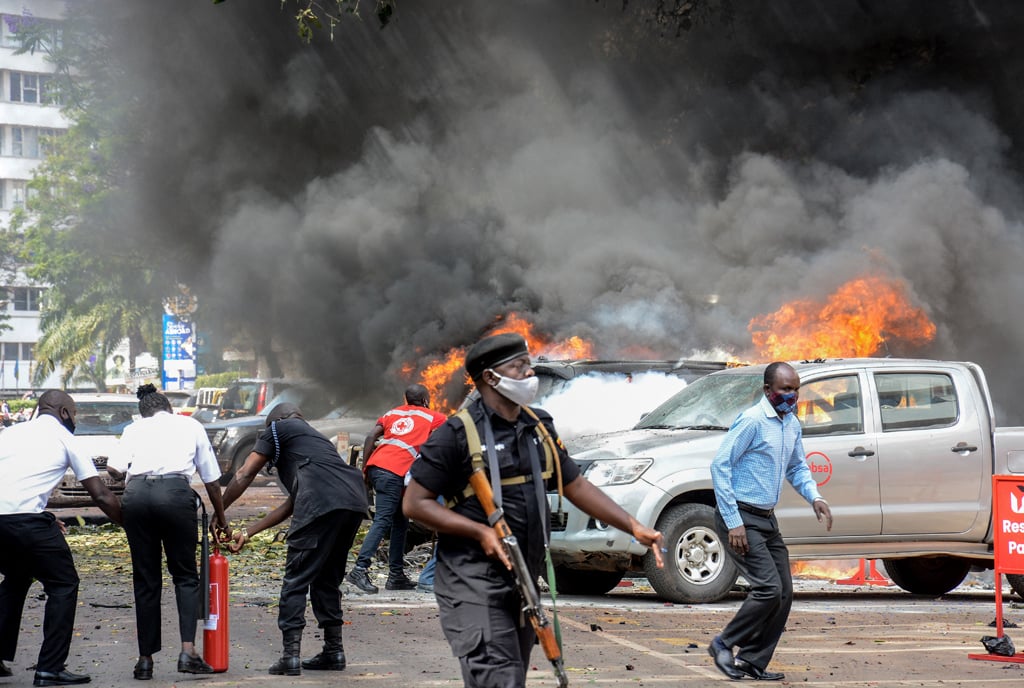Terror alert leaves bitter taste for tour operators

Tourists enjoy a game drive at Murchison Falls National Park in western Uganda. PHOTO/ FILE
What you need to know:
- Many interviewed for this article worried about the potential of booking cancellation and lost revenues in a sector finding its soul again after years of Covid-19 pandemic disruptions and sky closures
An alert by the United Kingdom (UK) government that a terrorist attack on Ugandan soil is “very likely” has struck tour operators like a thunderbolt.
Many interviewed for this article worried about the potential of booking cancellation and lost revenues in a sector finding its soul again after years of Covid-19 pandemic disruptions and sky closures.
In its travel advisory, London warned that terrorist “attacks could be indiscriminate or against foreign nationals or places frequented by foreign nationals”.
It urged British citizens in Uganda to exercise vigilance and avoid crowded places, among them sporting or religious events, and keep away from government buildings and security installations.
The travel advisory comes two weeks after attackers that the army has since identified as Allied Democratic Forces (ADF) militants raided Mpondwe-Lhubiriha Secondary District in the western Kasese District, killing 44.
Majority of the victims were students.
The surprise ADF incursion shook the tourism sector because some of Uganda’s famed gifts of nature, such as Bwindi and Queen Elizabeth national parks, are in west districts that share long porous border with the Democratic Republic of Congo (DRC) where ADF is based.
In a statement in response to our inquiries about the impact of travel advisories and terror alerts such the one issued by the UK on the weekend, Uganda Tourism Board (UTB) Spokesman, Mr Simplicious Gessa, said attacks such as on Mpondwe-Lhubiriha Secondary School are “very isolated”.
“[The] Ministry of Defence and Veteran Affairs has indicated that Kasese District and the entire Rwenzori sub-region [bordering the DRC] is secure, calm and peaceful. The tourists are safe,” he noted.
The army and police separately told this publication yesterday that whereas the threat of terrorism is recurring the world over, there should be no alarm over the alert the UK travel advisory because Uganda’s security and intelligence agencies have capacity to safeguard the country.
In yesterday’s statement, Mr Gessa assurances travellers to Uganda of their safety and urged them to visit and enjoy the priceless fauna and flora.
“Uganda has stunning landscapes, rich cultural heritage and diverse wildlife. By continuing to support Uganda’s tourism industry, visitors can contribute to the nation’s economic growth and demonstrate solidarity with Ugandan people,” he noted.
Other Tourism industry players voiced concern that whereas issuance of terror alerts are understandable, they come with negative consequences.
“The alerts are automatically going to lead to the cancellation of many trips to Uganda,” Mr Eddie Bosmick Ocaya, a tour operator and safari guide attached to Ngoni Safaris, said.
He said at the micro-levels, terror threat alerts followed by booking cancellations at the micro-level translate to joblessness of several people in tourism and hospitality sectors.
“It is a whole inconvenient process and giving back this money is important because one needs to keep good books with their clients,” said Mr Ocaya.
Ms Annet Karungi, a tour operator, shared similar sentiments, spotlighting that terror alerts disrupt tourism business.
“These notifications tend to disorganise our arrangements. Imagine a client making a booking for a trip with an advance payment only for the plans to get discarded.” Ms Karungi said.
According to the Annual Tourism Sector Performance Report for the Financial Year 2018/19, Uganda earned $1.6 billion (Shs5.8 trillion) from tourism, making the sector the country’s leading foreign currency earner for the fifth year before Covid struck at the end of 2019.
With the skies closed and travellers reluctant to fly once the global airspace reopened, the sector struggled through 2020, 2021 and 2022 and is just starting to find its foot back.




